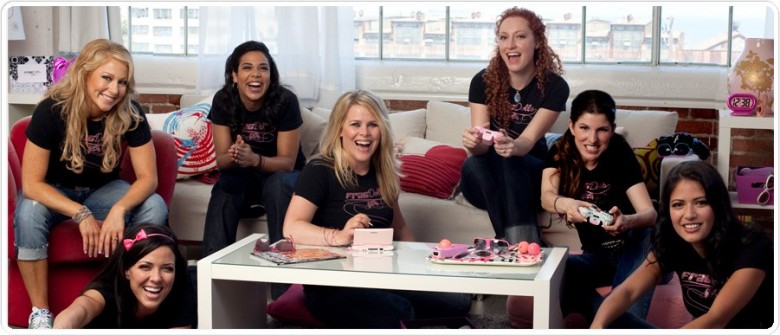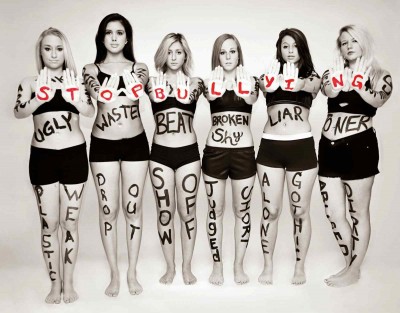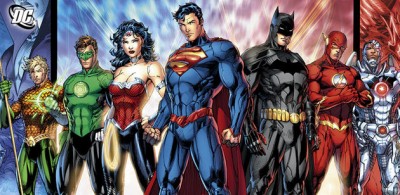
If there is anything positive to come from the #Gamergate controversy I wrote about earlier, maybe it’s the fact that people are now talking more about the issue of women in video games as a whole, be it as gamers, characters in a game, or women who work in the games industry. As the catalyst it became, #Gamergate has inadvertently rekindled the questions of sexual inequality, sexual objectification, gender specific bullying and gender neutral gaming, to mention but a few.
It’s difficult to write a piece on this subject without having an angle; after all, I’m a man and I enjoy gaming. I don’t play online and prefer single player first person shooters, for the very reasons that many women don’t enjoy playing online either; I really don’t have time for the clannish, tribal thuggery so prevalent today. But heck, that’s just me and I prefer a less confrontational gaming experience and single player doesn’t argue back at you.
Let’s take a look at some of the current issues here then shall we?
Gender neutral gaming
This is one heading I’m having the most trouble with, I’m telling you. As far as I can see, this particular tag is a reactionary label coined by feminism in order to balance the equation and strip out the hormones that most of us can’t live without. Some game publishers have indeed given gamers the chance to choose their gender, with EA’s Mass Effect trilogy being a recent example, but not the first, since Unreal and Quake both gave the gamer that choice back in the naughty nineties. It’s confusing isn’t it?

Gender neutral isn’t a term confined to gaming either, as is obvious from the above image, although my preference was always unisex as back in the day, one felt a tad daring by entering a unisex bathroom in say France or Belgium and tipping the little old lady on the way out, who of course never batted an eyelid.
One could draw the similarity of online gaming to that of the school playground of course, which I still remember vividly as more of a battleground of the sexes, where the boys lined up at one end and the girls the other and we all smirked at each other, if we dared. Is the gender neutral movement really going to succeed in reengineering our DNA, so that one day it will become a punishable offense to publicly divulge our gender online?
Gender specific bullying
Not having played online for many years, I do know how the theatre has changed and for the most part come of age at a time where video-chat is now de rigeur. But so is griefing it would seem, a term used for bullying in games, where the griefer’s sole purpose in life is to taunt and wreck the efforts of others, to the maximum satisfaction of themselves. Sound familiar? It seems that we’re back to the playground again and if I had a magic cure for online bullying, I wouldn’t be sitting here writing for DCT.

Bullying in any shape or form has existed since the sun came up and not surprisingly, no one has come up with the magic formula to eradicate it. What’s worse? Women being bullied by men online? Women bullying other women? Men bullying weaker men? Take your pick.
Taking Blizzard’s World of Warcraft as an example, it’s difficult to see how this monster can be tamed, bearing in mind that the subscriber base to WOW is around 10 million and moderating that kind of figure is an enormous task. Bullying girl gamers is a known problem and many have been driven out, but then so have a large number of male gamers who may happen to be gay, of a different ethnic origin to that of the stereotypical male gamer or they simply don’t want to play the role of the alpha male.
Women as sexual objects in games
Apart from the fact that women who work in the gaming industry are said to receive 27% less remuneration that their male counterparts, an issue that I don’t feel adequately fired up about to comment on here, apart from the fact that it makes little sense, the sexual objectification of women in video games is an issue that’s become skewed over the years, particularly as more women are now playing games.
For many gamers, their first encounter with a female game character was Lara Croft of Tomb Raider fame. At the time she was a break with the norm of hunky males prancing around and became a star overnight, not just because she’s a woman, but because the game worked on so many different levels. The very fact that Lara is a woman, maybe brings out the hero wish in all of us. As the player you want to survive and as the protector of Lara, you don’t want her to die a horrible death, even if that really does happen more often than you would wish.
But has Lara been in danger of becoming simply a sex object? It’s said that the creator Toby Gard, whilst adjusting the character model accidentally increased her breasts’ dimensions by 150 percent, but it was decided to keep them like that, presumably for marketing purposes.

As the series progressed, Lara’s expanding breasts notwithstanding, it became clear that she’d become more an icon of female empowerment than a sex icon, which for me is a testament to the longevity and playability of the Tomb Raider games overall. Frankly, the argument that she has somehow let the side down and succumbed to the idea of a male sex fantasy is questionable. Playing a game and how the character is promoted are two different matters, not to mention what the modding community get up to with nude mods and the like in their spare time.
Tomb Raider could be considered as fairly unique in this sense, as many other games certainly portray the female as a stereotype in a fantasy world, much like comics and cartoons have done so. To get an idea of how the objectification of women is viewed, here is a truncated extract from Objectification Theory as published in Psychology of Women Quarterly, 1997:
“Girls and women are typically acculturated to internalize an observer’s perspective as a primary view of their physical selves. This perspective on self can lead to habitual body monitoring, which, in turn, can increase women’s opportunities for shame and anxiety, reduce opportunities for peak motivational states, and diminish awareness of internal bodily states….”

There are calls from the feminist camp, to lobby game developers to portray female game characters in a more realistic fashion and to move away from the exaggerated and cartoonish style in which they are currently portrayed, by playing down the female character’s physical attributes and dressing them in a more appropriate style commensurate with their environment.Some might say that Lara needs to re-visit her wardrobe in the picture above as running around the jungle in a pair of hot pants and a skimpy top, really isn’t dressing for the occasion, even though the setting is pure fantasy, which is the central point of why we play video games in the first place.
A similar and more relevant argument concerns porn, where real women are without doubt sexual objects. Most gamers see the game they are playing as an escape from the real world and accept the fact that the characterisation is just that.
Are gamer girls having the last laugh?
Enter The Frag Dolls, a group of girl gamers recruited and employed by Ubisoft in 2004 to promote their games and act as ambassadors for competitive gaming and to encourage more women to play games, proving that women can enjoy the same games as men. This group is a good example of women in the gaming world having fun, without needing to take a feminist stance to enjoy gaming competitively. It’s also apparent that they take the fight to the bullies, which is always the perfect way to catch a bully off guard and getting them to back down. I’ve featured the Frag Dolls image at the top of this article to illustrate that you can have fun in gaming and not be viewed as some kind of sex object.
On the other hand, whilst the feminists in the games industry would have us believe that covering up our gender and playing down female bodily attributes of games characters, is somehow going to level the playing field, many girl gamers have taken their own individual approach, because they know how to manipulate their sexuality to get what they want in an arena that was once male dominated.
Here’s an example of a girl who uses her looks and physique to bring viewers to her YouTube channel.
[youtube]http://youtu.be/lZxJWX174NU[/youtube]
One has to draw one’s own conclusions on the presentation style, but it’s hard to deny that it’s a formula that appears to work and is almost totally free from the kind of vitriolic comments normally associated with YouTube videos, by grabbing the attention of the intended audience.
Women are associated with video games right across the spectrum, which includes Pro Competitive, Cosplay, journalists and programmers. In fact Kickstarter is funding a Women of Gaming 2015 calendar developed by Marc Morris, which features prominent women in the industry simply looking good and being comfortable with themselves. Who knows, maybe next year Mr Morris will be commissioned to produce a Men of Gaming 2016 calendar next year and working on the statistic that almost half the gamers around the world are in fact women, I’m sure it would sell by the bucket load.

Remember those comics your Dad bought you when you were a kid?
You really wanted Wonderwoman to look like that didn’t you? You couldn’t imagine her looking like your Mum; then you discovered video games and quickly realised that even if your heroine could look darned good, it was more important that she beat the game and survived.
Then you discovered gaming online and jumped into World of Warcraft and League of Legends, made new friends, got your mates to join in and discovered that some of them were girls.
Did you care?

Great Article!! I am a female and I am a gamer. I do not game every day but I had 3 kids (2 boys & a girl) and it was something we could all do and talk about & compete with one another. I think the developers though need to gear some of the games for all genders though.